3rd Meeting of the Intersessional Process Considering the Strategic Approach and the Sound Management of Chemicals and Waste Beyond 2020 (IP3)
30 September - 4 October 2019 | UN Conference Centre (UNCC), Bangkok, Thailand
Summary Highlights
The Strategic Approach to International Chemicals Management (SAICM) was adopted in 2006 as a policy framework to promote chemical safety around the world. SAICM contains an ambitious goal to achieve the sound management of chemicals throughout their life cycle so that by the year 2020 chemicals are produced and used in ways that minimize significant adverse impacts on the environment and human health. As 2020 rapidly approaches, governments have been examining progress towards that goal and discussing SAICM’s future beyond 2020, when its current mandate expires.
At the Third Meeting of the Intersessional Process for Considering SAICM and the Sound Management of Chemicals and Waste Beyond 2020 (IP3), participants continued their discussions on possible elements for a post-2020 platform for international cooperation on the sound management of chemicals and waste for consideration by the fifth meeting of SAICM’s governing body, the International Conference on Chemicals Management when it convenes in Bonn, Germany, in October 2020. The goal for IP3 was to develop, as far as possible, input for a “zero draft” for deliberation at the fourth and last IP meeting scheduled in Bucharest, Romania in March 2020.
IISD Reporting Services, through its Earth Negotiations Bulletin (ENB) meeting coverage, provided daily web coverage and a summary and analysis report from IP3. The summary and analysis report is now available in HTML and PDF.
Highlights for Friday, 4 October 2019
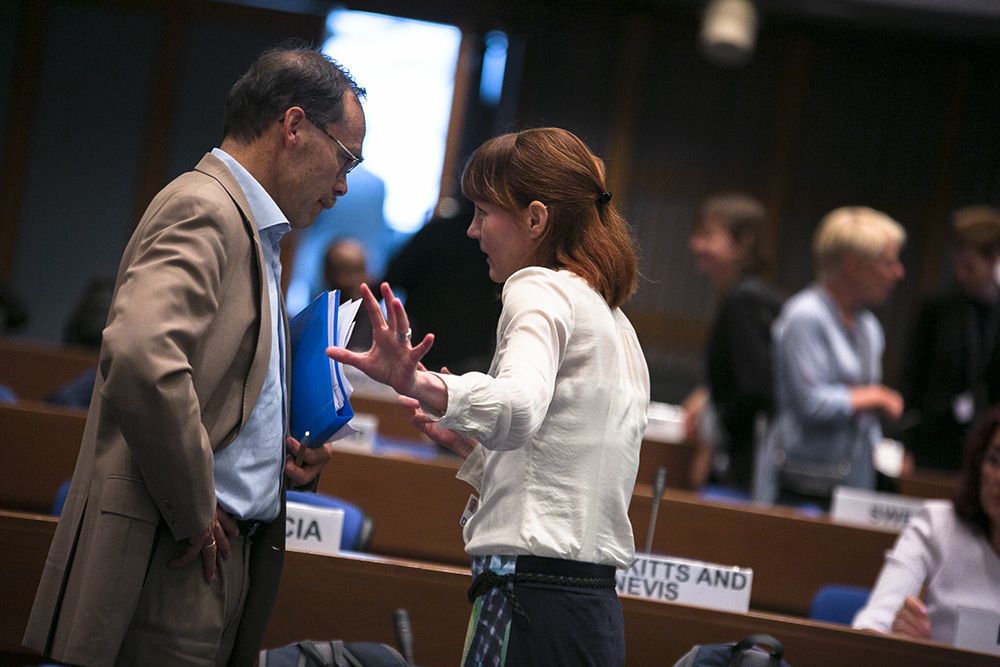
The Third Meeting of the Intersessional Process for Considering the Strategic Approach to International Chemicals Management (SAICM) and the Sound Management of Chemicals and Waste Beyond 2020 (IP3) convened for its last day on Friday, 4 October 2019, in Bangkok, Thailand.
In the morning, plenary briefly reconvened to hear the Co-Chairs of the four thematic groups report on progress made in addressing their respective mandates, particularly in reducing brackets around text being developed for the fifth session of the International Conference on Chemicals Management (ICCM5).
Work then resumed in three of the four thematic groups. The Thematic Group on Targets, Milestones, and Indicators finished discussion on the targets assigned and signed off on draft terms of reference for a technical working group to be established in the months before IP4 in March 2020 to complete remaining work on targets, milestones, and indicators.
The Thematic Group on Enhanced Governance and Institutional Mechanisms reviewed the Co-Chairs' paper on enhancing multi-sectoral multi-stakeholder engagement. The Group asked relevant stakeholders to develop plans for their contributions to the post-2020 platform and submit them to the Secretariat for compilation and consideration at IP4. The Group also conducted an additional reading of the section on institutions, focusing principally on provisions regarding the functions of the International Conference.
The Thematic Group on Financial Considerations discussed the Co-Chairs' paper on capacity building and decided to circulate it to stakeholders for comments to be submitted to the Secretariat by 15 December, so a revised document could be considered at IP4. The Group also reviewed proposals for finance-related targets, including where indicators might be needed to be developed, to be forwarded to the expert group on targets, indicators, and milestones that will meet before IP4.
At closing plenary, delegates heard reports from the thematic groups and from the various organizations that hosted the week's sectoral meetings on health, agriculture, labor, and environment. ICCM5 President Gertrud Sahler hailed the intensive and fruitful deliberations as setting a firm foundation for work at IP4 and a large step toward a successful ICCM5. IP Co-Chair David Morin (Canada) outlined the process for generating a "zero draft" for deliberations at IP4. Germany announced that it would host a special workshop before IP4 to discuss a possible enabling framework for the beyond-2020 platform, and Norway offered to help fund broad stakeholder participation in the workshop. The meeting closed at 5:45 pm.
As the meeting closed and delegates left the conference center, many commented on the progress made both in the formal thematic group deliberations and in informal discussions between participants. While all admitted that IP4 faces a very full agenda, there was some optimism. As one participant put it, "the value of the meeting should be measured not by the amount of bracketed text, but by the valuable conversations that began to find common ground."
+ Visit the web coverage for Friday, 4 May 2019
Photos by IISD/ENB | Sean Wu
For photo reprint permissions, please follow instructions at our Attribution Regulations for Meeting Photo Usage Page
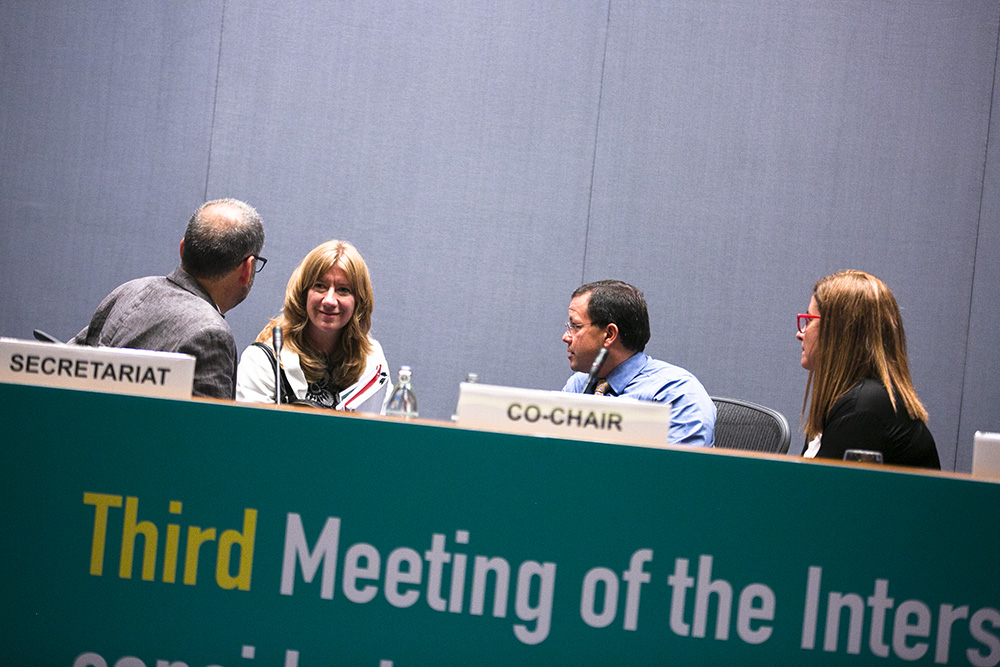
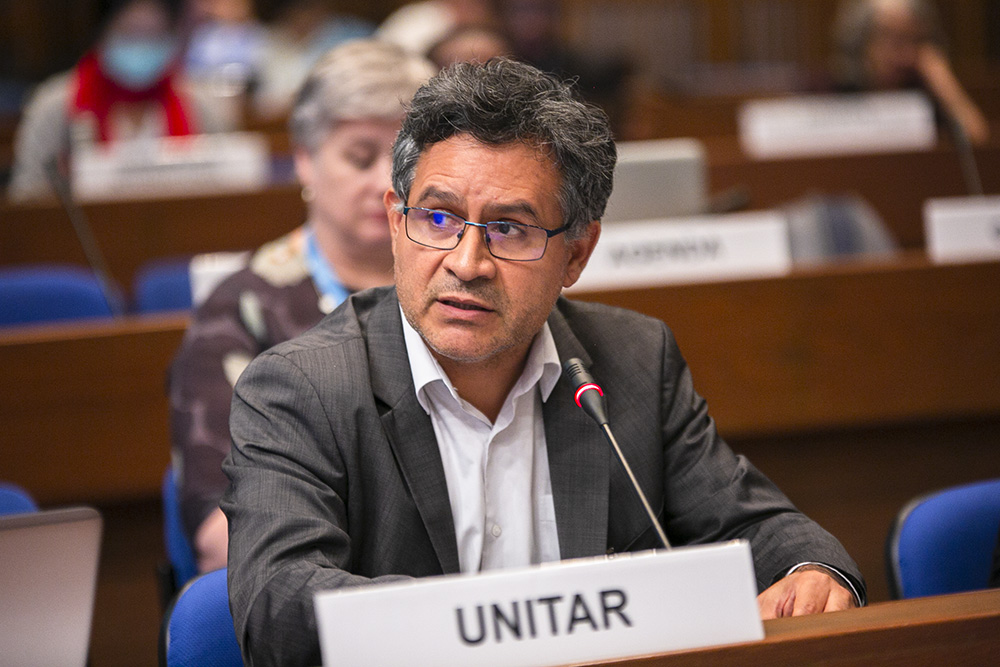
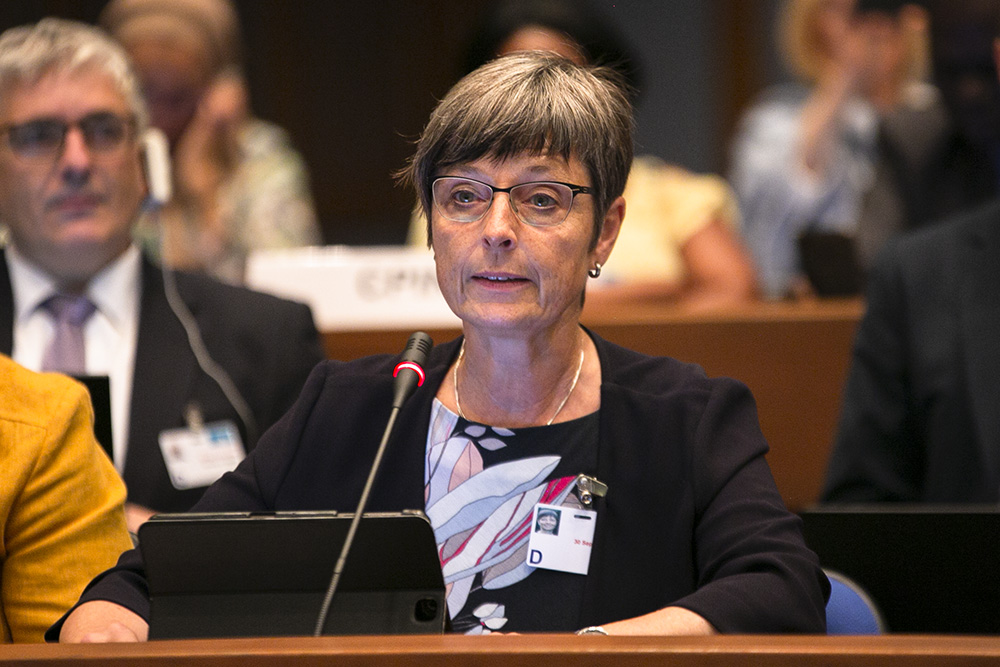
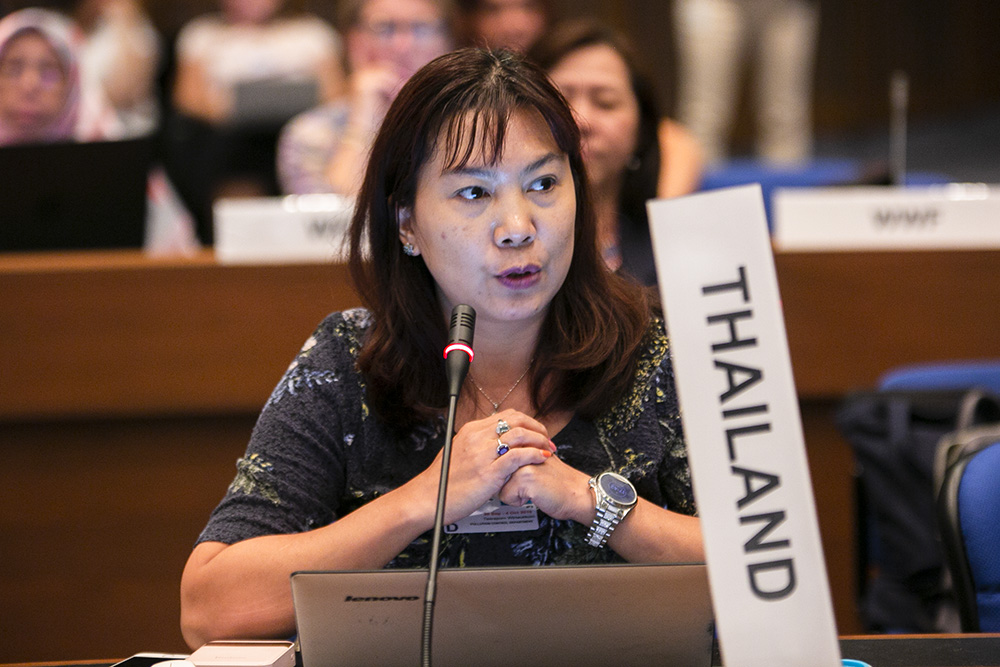
Highlights for Thursday, 3 October 2019

Delegates convened for the third day of the Third Meeting of the Intersessional Process for Considering the Strategic Approach to International Chemicals Management (SAICM) and the Sound Management of Chemicals and Waste Beyond 2020 (IP3) on Thursday, 3 October 2019, in Bangkok, Thailand.
In the morning, plenary briefly reconvened to hear the Co-Chairs of the four thematic groups report limited progress in reducing bracketed text indicating disagreements in the text of recommendations being developed for the fifth session of the International Conference on Chemicals Management (ICCM5). IP Co-Chair David Morin (Canada) reminded participants of the goal of achieving a complete zero draft at the end of IP3 to allow sufficient time to review the text and prepare for final negotiations at IP4 in March 2020.
Delegates then resumed their consideration of draft texts in the thematic groups. In the morning, the Thematic Group on Targets, Milestones, and Indicators reviewed five strategic objectives proposed by the third meeting of the Open-ended Working Group (OEWG3) to be recommended to ICCM5. The Group discussed potential targets against:
- Strategic Objective D on maximizing benefits and minimizing risks through safer alternatives, innovative and sustainable solutions and forward thinking;
- Strategic Objective A on the need for measures to be identified, implemented and enforced to prevent, or minimize harm from chemicals and waste; and
- Strategic Objective E on sound management of chemicals and waste as an essential element in achieving sustainable development.
The Thematic Group on Enhanced Governance and Institutional Mechanisms met in the morning and evening, focusing primarily on text regarding the functions of the High-Level Segment of the ICCM, including new proposals on:
- linkages with other sectors such as biodiversity, climate change, and human rights;
- promoting international cooperation to overcome challenges faced by developing countries; and
- mobilization of financial and technical resources and transfer of technology.
In the afternoon, the Thematic Group on Mechanisms to Support Implementation began a second reading of text relating to the process of identifying issues of concern for inclusion in a post-2020 framework. In the evening, the group held an initial exchange of views on how to deal with existing emerging policy issues, reviewed a summary by the Co-Chairs of discussions relating to the science-policy interface, and reviewed new targets proposed under the mandate of this Group.
The Thematic Group on Financial Considerations discussed at length proposals on:
- mainstreaming chemicals and waste management into national budgets and development aid priorities as well as into development bank aid programs;
- developing guidance and recommendations for investors to minimize economic risks associated with unsound chemicals and waste management; and
- a proposal by the Latin American/African Groups for a new International Fund dedicated to sound management of chemicals and waste.
As the day wore on, many delegations, and at times the thematic group co-chairs themselves, expressed frustration that the pace of deliberations was not picking up. One group worked through lunchtime and two added evening sessions in the hopes of breaking the logjam. “We’re running out of time if we want to avoid sending a messy text to IP4” fretted one seasoned participant.
+ Visit the web coverage for Thursday, 3 May 2019
Photos by IISD/ENB | Sean Wu
For photo reprint permissions, please follow instructions at our Attribution Regulations for Meeting Photo Usage Page

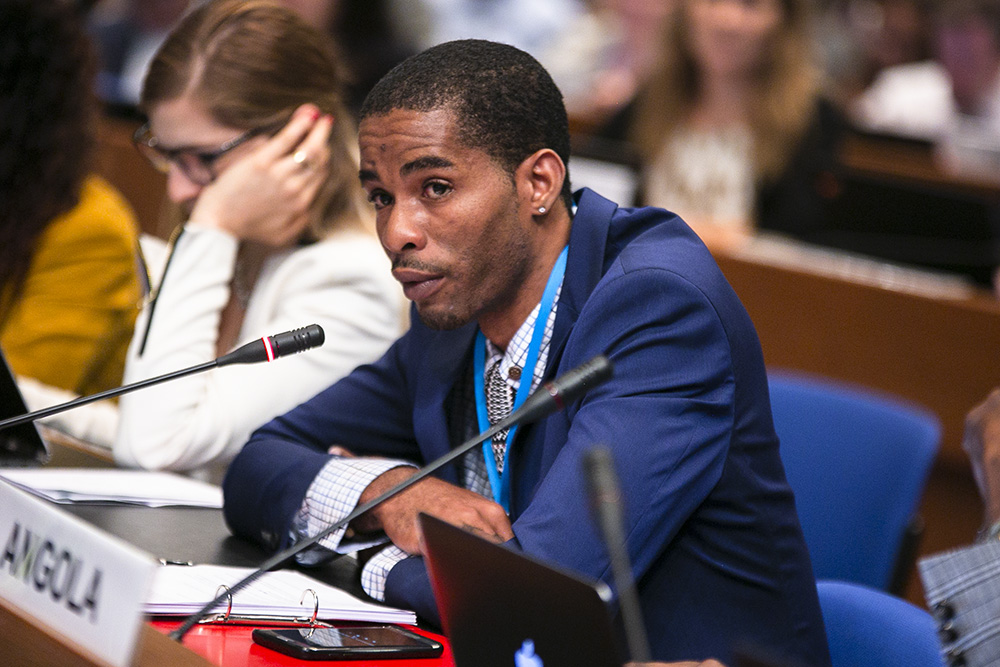
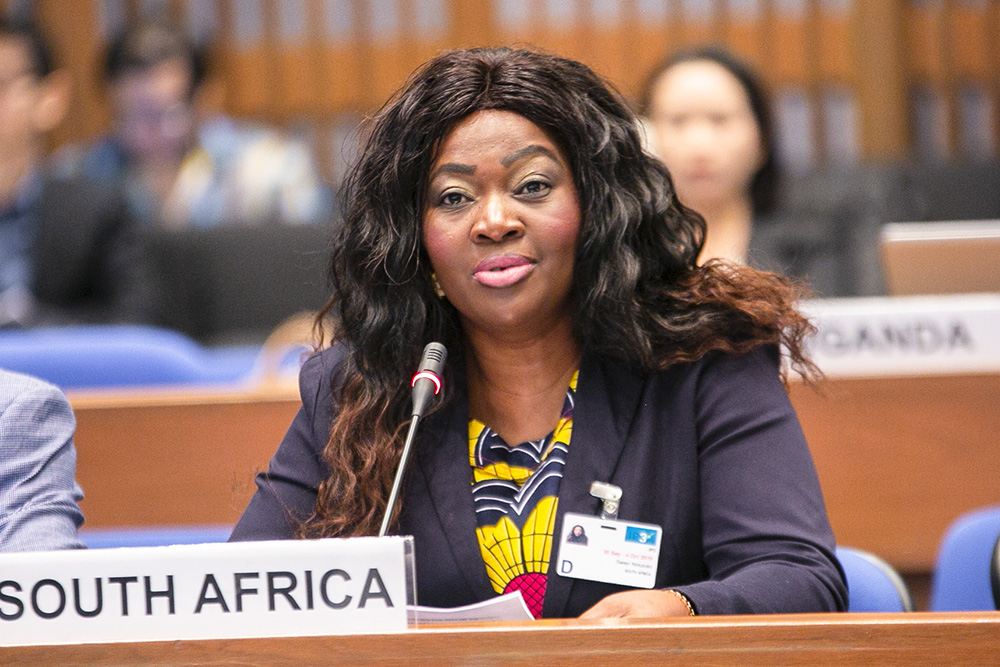
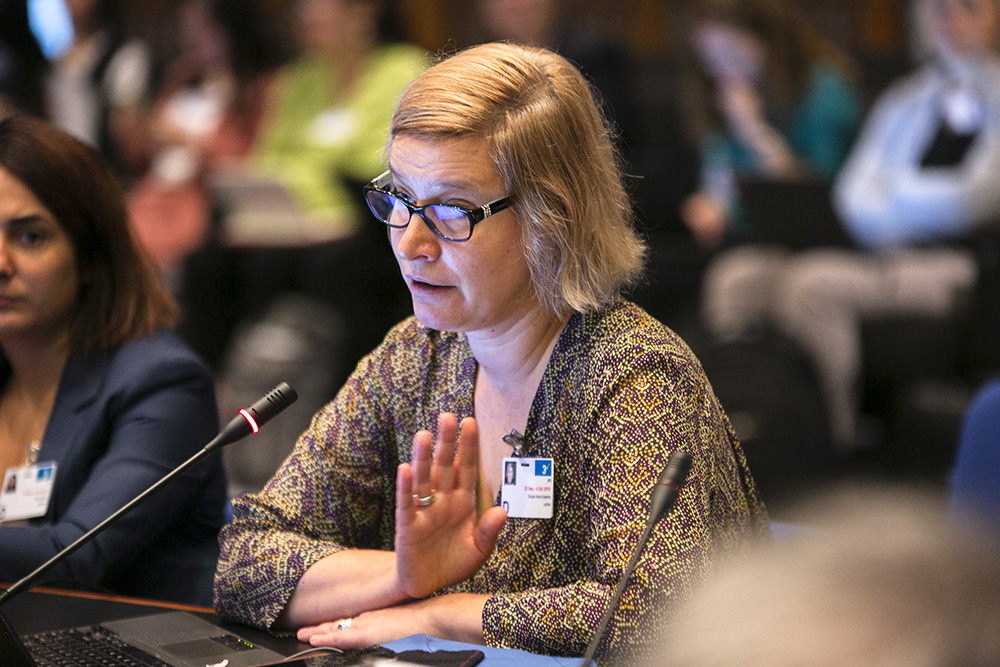
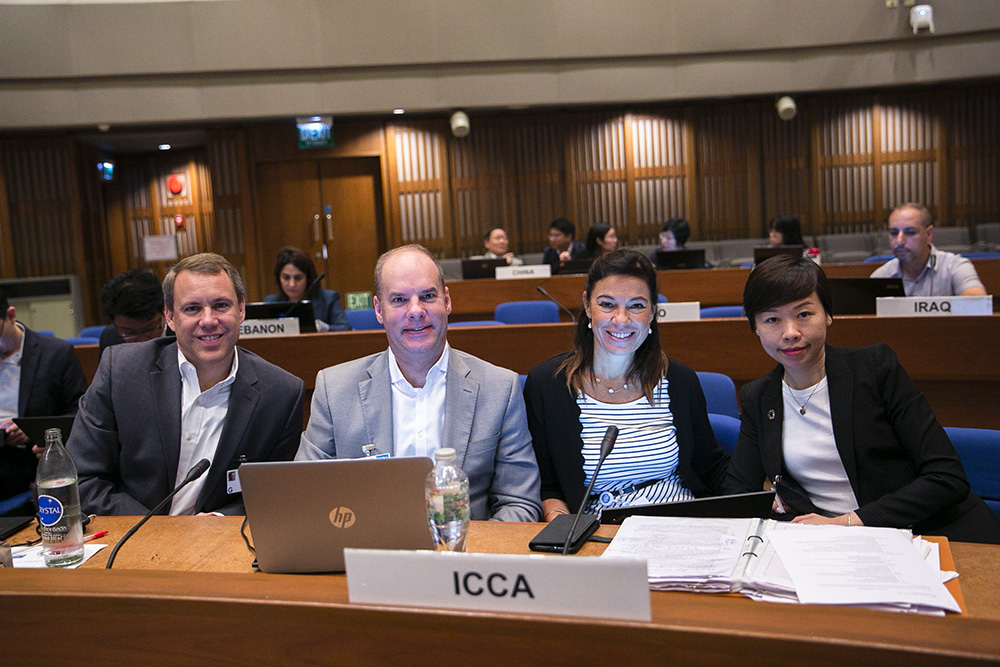
Highlights for Wednesday, 2 October 2019
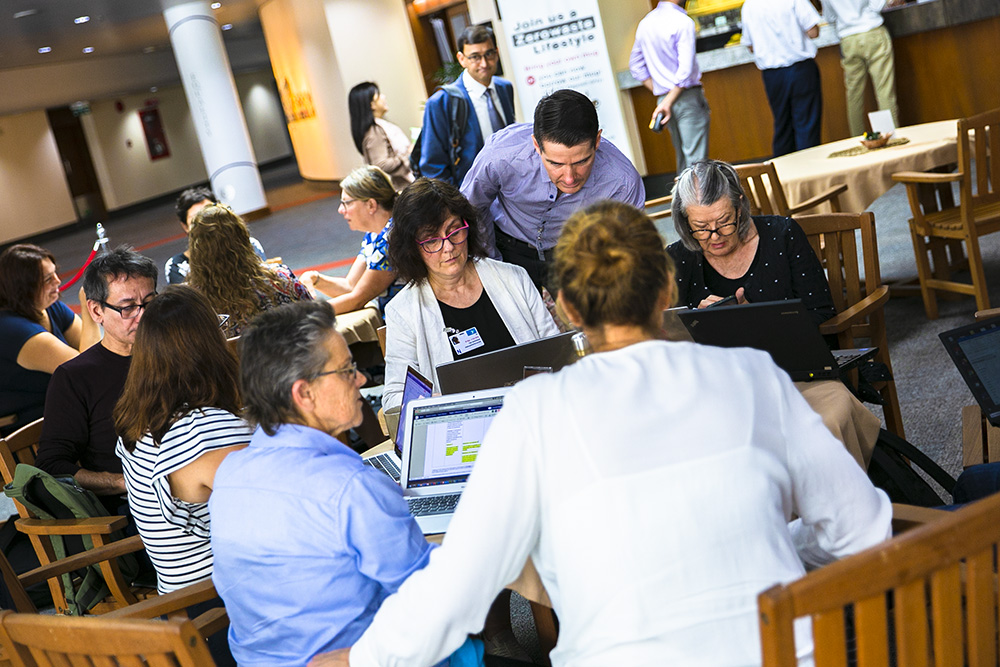
Delegates convened for the second day of the Third Meeting of the Intersessional Process for Considering the Strategic Approach to International Chemicals Management (SAICM) and the Sound Management of Chemicals and Waste Beyond 2020 (IP3) on Wednesday, 2 October 2019, in Bangkok, Thailand.
In the morning, the Thematic Group on Targets, Milestones, and Indicators commenced its discussions of potential targets under five strategic objectives proposed by the third meeting of the Open-ended Working Group (OEWG3) in April 2019 to be recommended to the fifth session of the International Conference on Chemicals Management (ICCM5) scheduled for Bonn in October 2020. Delegates held an initial exchange of views on proposed targets, relating to availability and accessibility of knowledge, data, and information for sound management of chemicals and waste.
The Thematic Group on Financial Considerations debated how to provide stable and adequate funding for the SAICM Secretariat based on a paper proposed by Norway and Switzerland, as well as mainstreaming the sound management of chemicals and waste into national development plans, budgets, and policies. It also discussed the role of development banks, provisions involving the private sector's contribution, and whether to call for guidance on financial sector investments in companies that have chemical management schemes in place.
In the afternoon, the Thematic Group on Mechanisms to Support Implementation discussed proposed text on options for taking stock of progress and updating the post-2020 framework. It also reviewed revised text on the definition of issues of concern and criteria for identifying such issues. The Thematic Group on Enhanced Governance and Institutional Arrangements held an initial discussion of a paper submitted the German Environment Agency, offering views on a post-2020 enabling framework and whether such a framework is needed. They also considered proposals regarding the ICCM and its functions and heard a brief presentation by the group’s Co-Chairs on their compromise proposal for enhanced multi-sectoral and multi-stakeholder engagement.
During the lunch hour the International Labour Organization (ILO) hosted a labor sector meeting to discuss greater sector involvement in a post-2020 platform and ILO proposals on indicators across the post-2020 targets.
Despite going two hours over time, limited progress was made in going through text and proposals, with exhausted delegates expressing frustration that bracketed text indicating disagreement was proliferating rather than shrinking. As one exasperated delegate was heard asking repeatedly, "Are we here to eliminate brackets or to get stuck?"
+ Visit the web coverage for Wednesday, 2 May 2019
Photos by IISD/ENB | Sean Wu
For photo reprint permissions, please follow instructions at our Attribution Regulations for Meeting Photo Usage Page
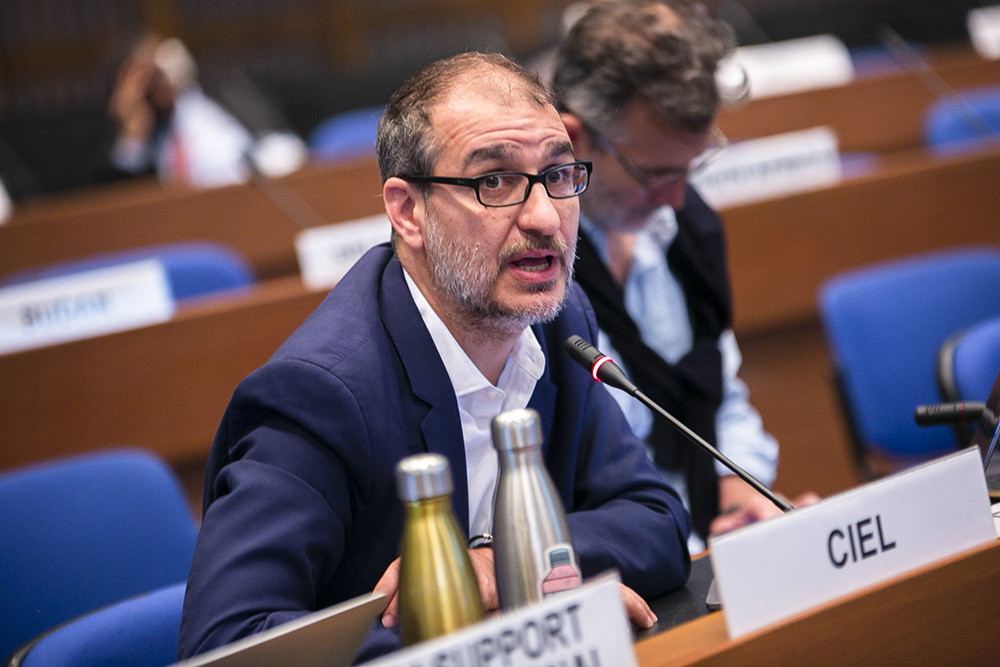
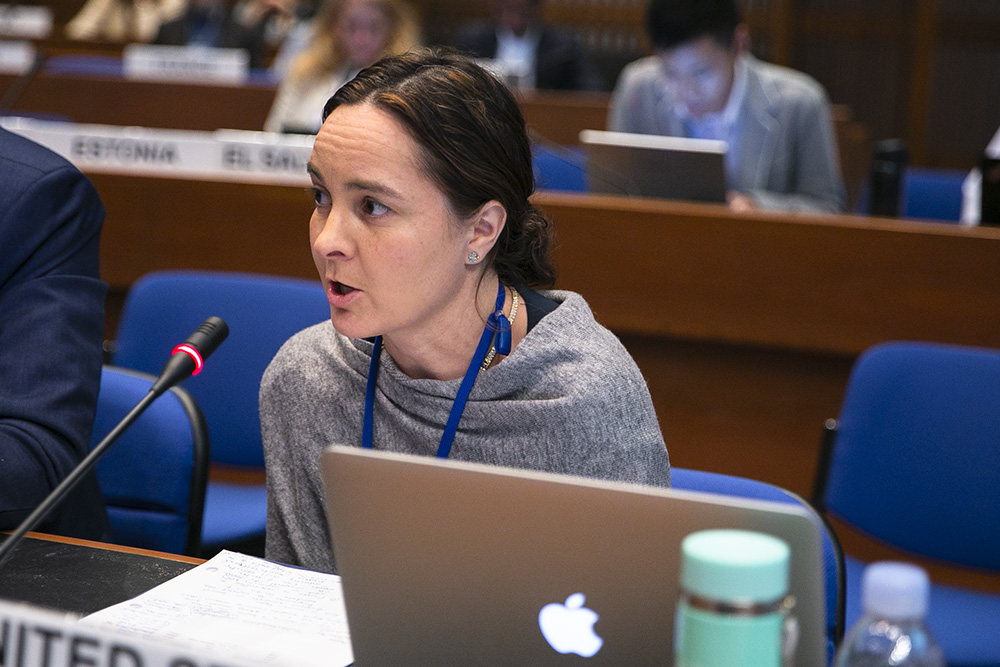
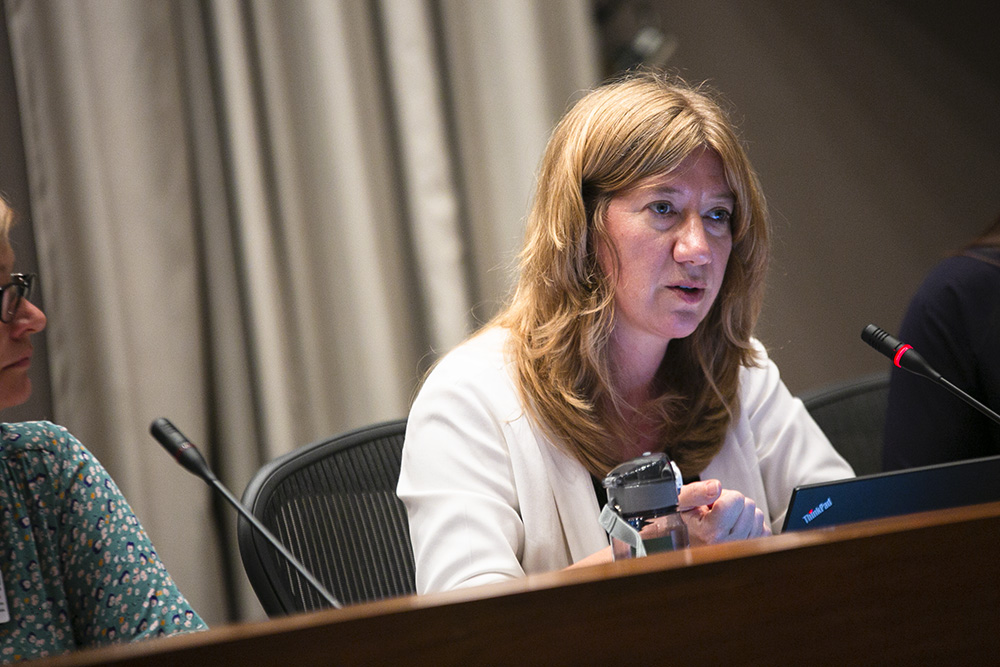
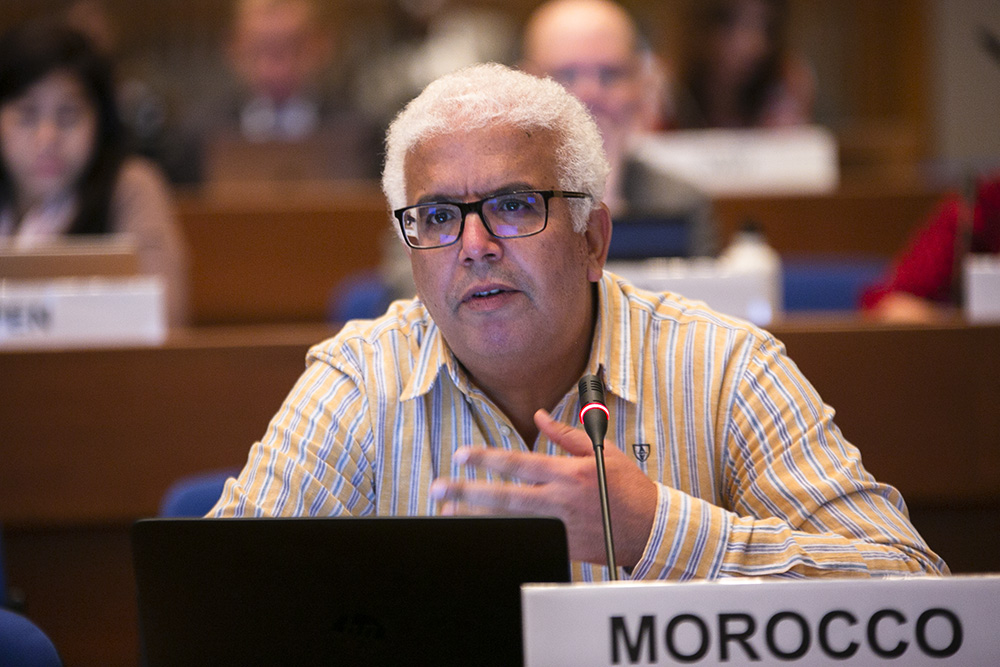
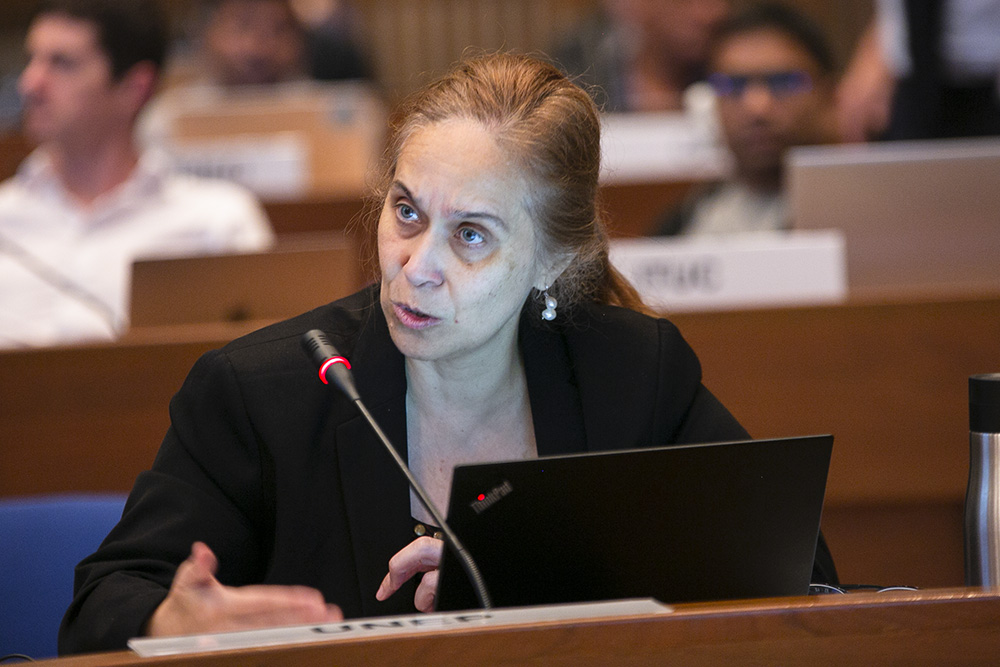
Highlights for Tuesday, 1 October 2019
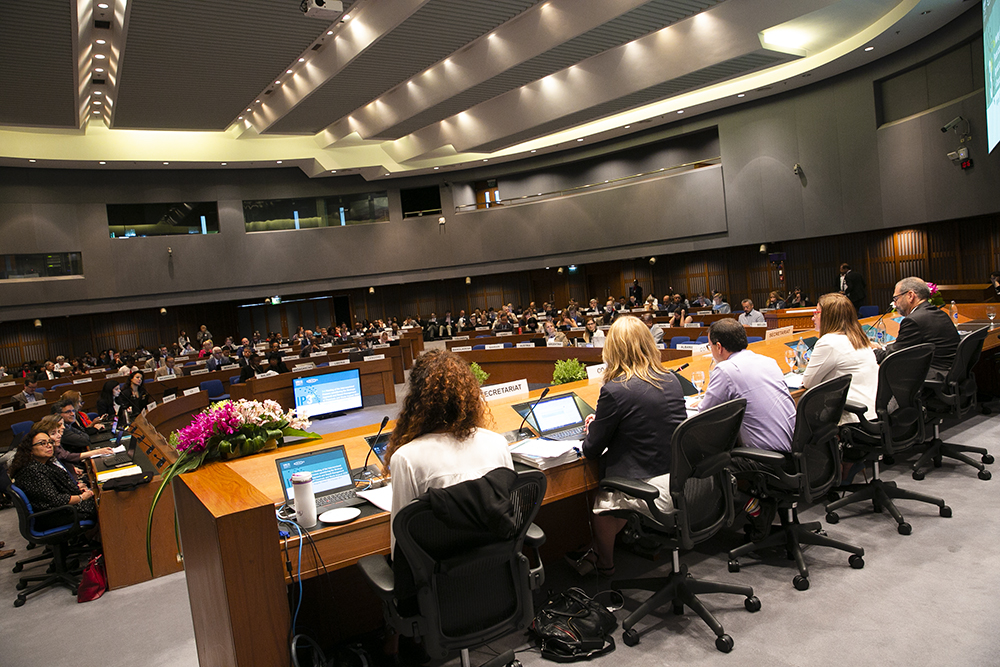
The Third Meeting of the Intersessional Process for Considering the Strategic Approach to International Chemicals Management (SAICM) and the Sound Management of Chemicals and Waste Beyond 2020 (IP3) opened at the UN Conference Centre (UNCC) in Bangkok, Thailand, on Tuesday, 1 October 2019. Delegates heard opening statements from Pralong Dumrongthai, Director-General, Pollution Control Department, Ministry of Natural Resources and Environment, Thailand, Gertrud Sahler (Germany), President of the fifth International Conference on Chemicals Management (ICCM5) and Tim Kasten, the incoming Officer-in-Charge of the SAICM Secretariat, all stressing the importance of IP3 to develop recommendations that can be finalized at IP4 in March 2020 and offered for ICCM5 decisions in October 2020.
Following organizational matters, the meeting reviewed the various inputs introduced at this session regarding:
- additional measures to achieve multi-sectoral and multi-stakeholder engagement;
- the definition, criteria and possible modalities for adopting issues of concern;
- mechanisms to support implementation, including appropriate and effective mechanisms for taking stock of progress;
- mechanisms for capacity building; and, a mechanism for updating the post-2020 instrument over time;
- principles and approaches;
- successful mechanisms for cost recovery and implementation of the polluter pays principle for financing the sound management of chemicals and waste;
- linkages and options to coordinate and cooperate between chemicals and waste management and other policy agendas; and
- results from a September 2019 technical expert workshop on indicators.
IP3 then organized four thematic groups designed to develop recommendations for ICCM5 on:
- targets, milestones and indicators;
- enhanced institutional arrangements;
- mechanisms to support implementation (including the science-policy interface and issues of concern); and
- financial considerations.
In the afternoon, two thematic groups commenced their work. The group on institutional arrangements discussed possible changes regarding the Bureau and Secretariat, as well as proposals to improve multi-sectoral and multi-stakeholder engagement. On the latter point, the group considered the need to develop a specific strategy for approval at ICCM5, with the group co-chairs committing to preparing proposals toward that end for consideration later in the week. The thematic group on implementation held an initial exchange of views on proposals outlined in the Co-Chairs’ text, as well as relevant background documents. The discussions addressed: definition and criteria for identifying issues of concern; modalities for adopting issues for concern and monitoring their progress; and options for strengthening the science-policy interface at the international level for the sound management of chemicals and waste.
During lunch a sectoral meeting on health was held to discuss the sector's priorities in a post-2020 framework. In the evening a special session was held to discuss linkages between the biodiversity and chemicals/waste agendas, and how to turn these linkages into targets and indicators.
Delegates arrived at IP3 ready to tackle a heavy agenda armed with a dizzying array of inputs, but conscious that much work remains and time is running out to finish numerous tasks before ICCM5 is held one year from now in Bonn. As one delegate noted, "The Co-Chairs outlined ambitious goals for IP3, we'll be lucky to achieve half of what they want." As ambitious as the IP3 agenda already was, it got more so when concerns from several delegates led to less plenary time Tuesday and more time granted for discussing implementation, governance and institutional arrangements, including proposals for a complementary enabling framework.
+ Visit the web coverage for Tuesday, 1 May 2019
Photos by IISD/ENB | Sean Wu
For photo reprint permissions, please follow instructions at our Attribution Regulations for Meeting Photo Usage Page
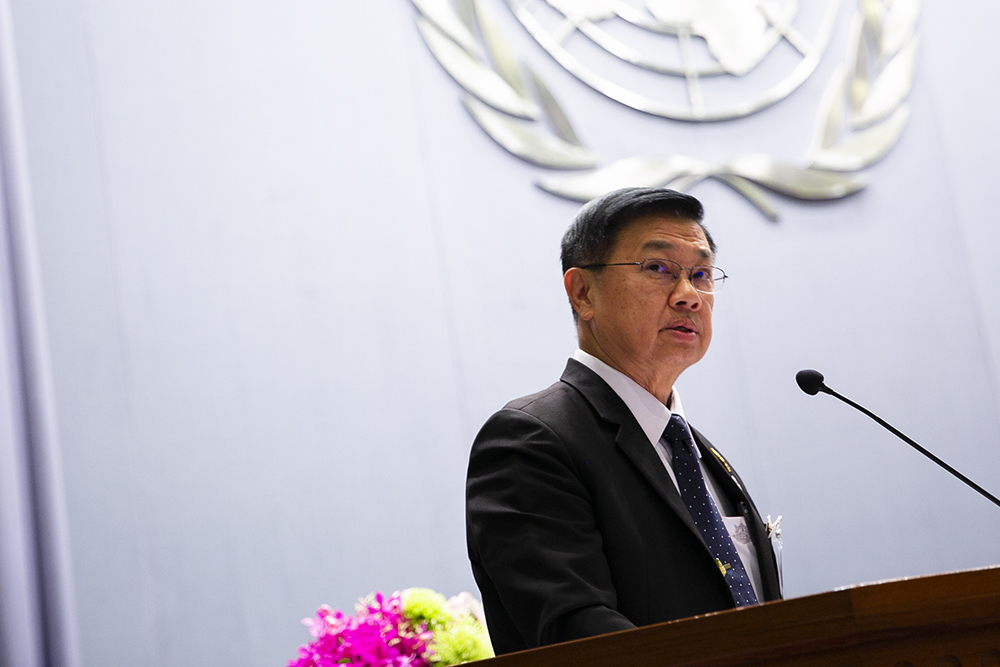
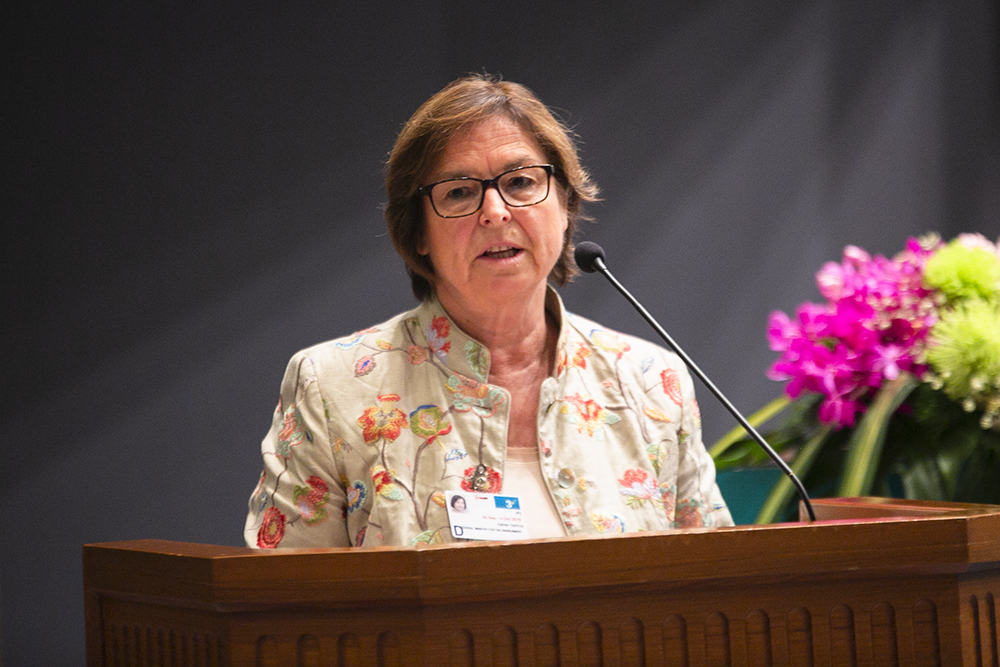
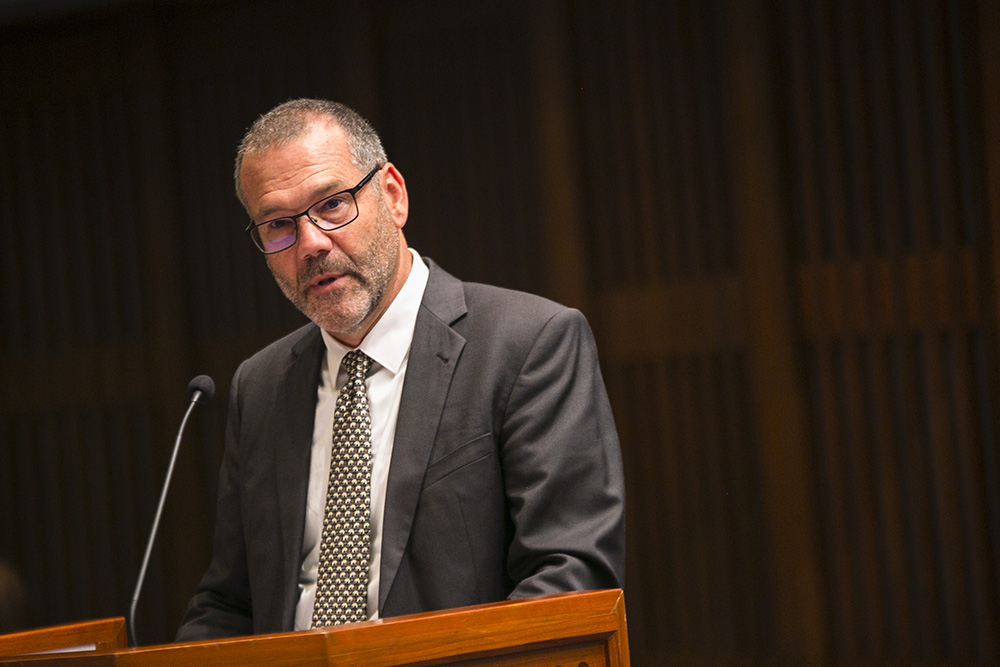
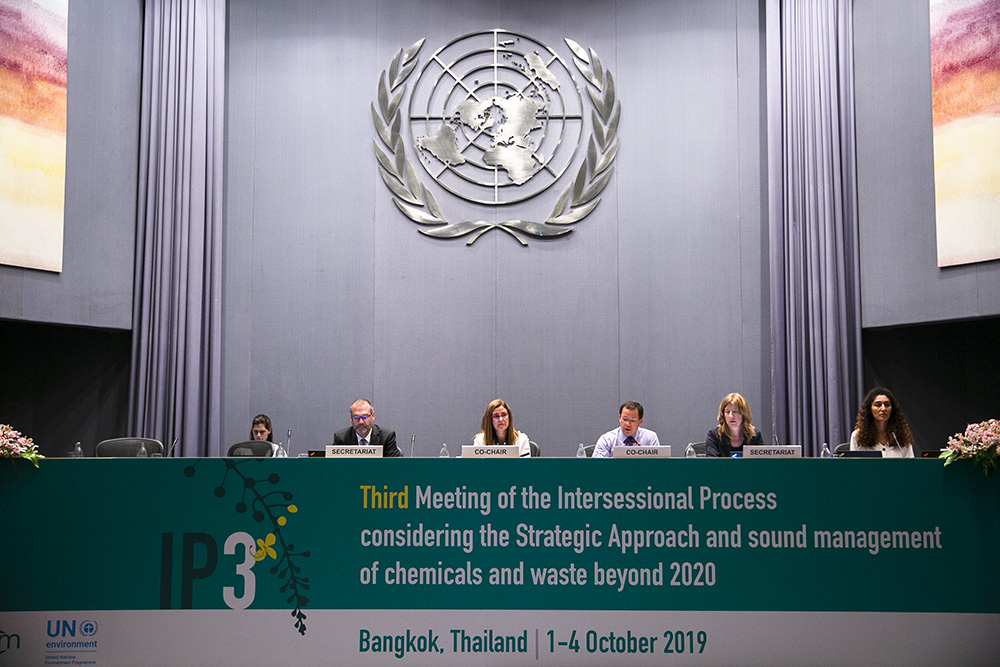
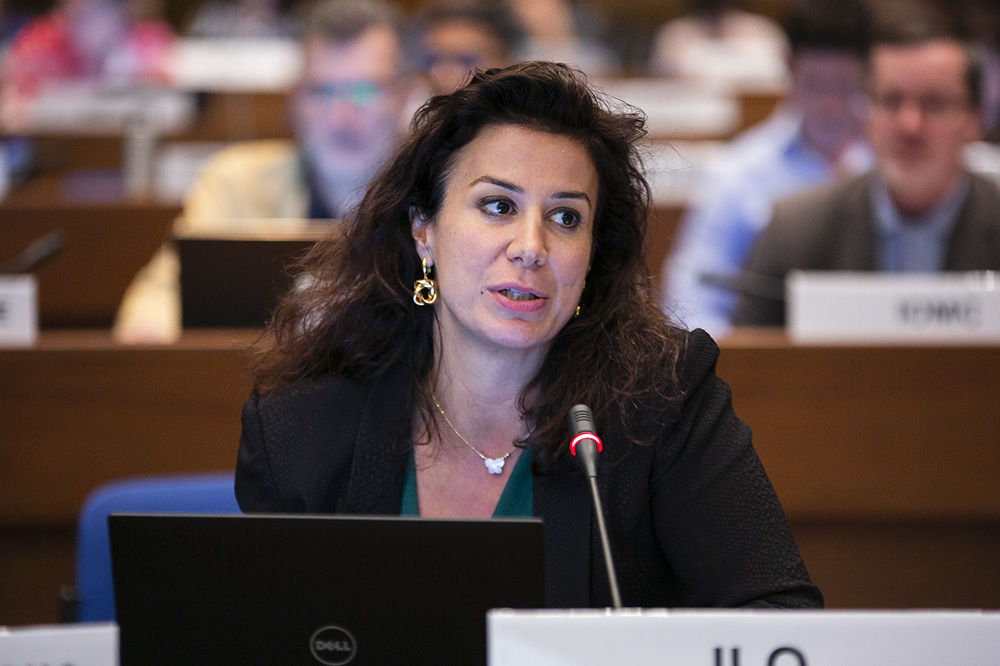
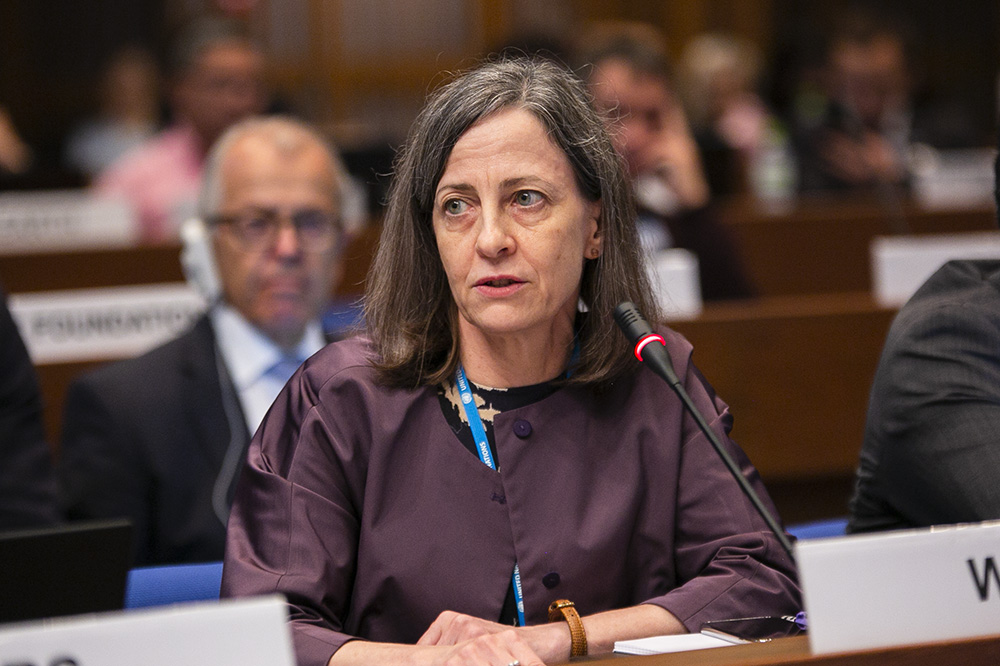
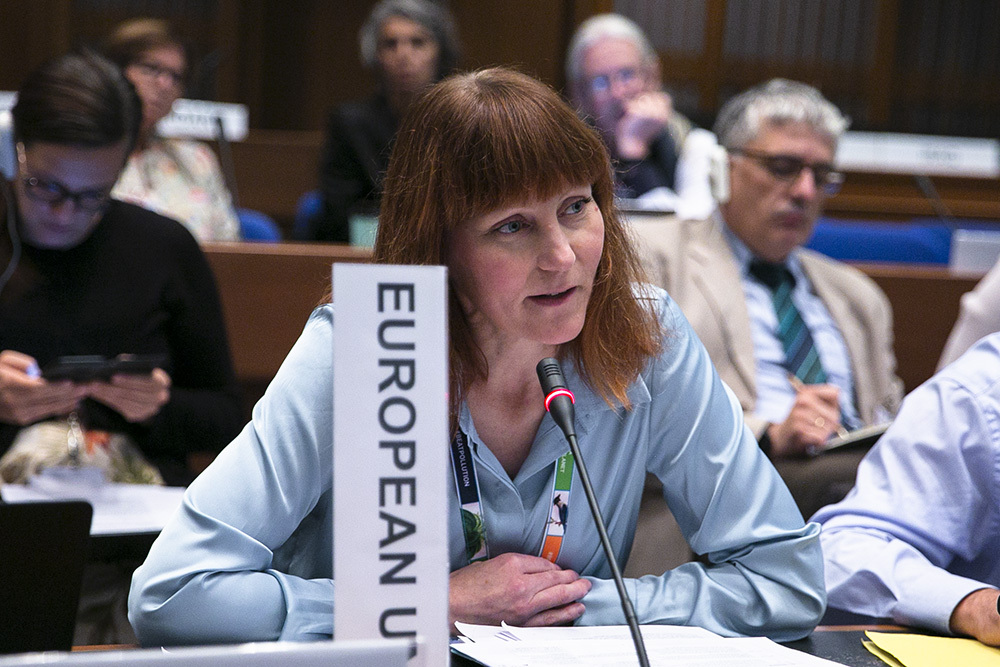
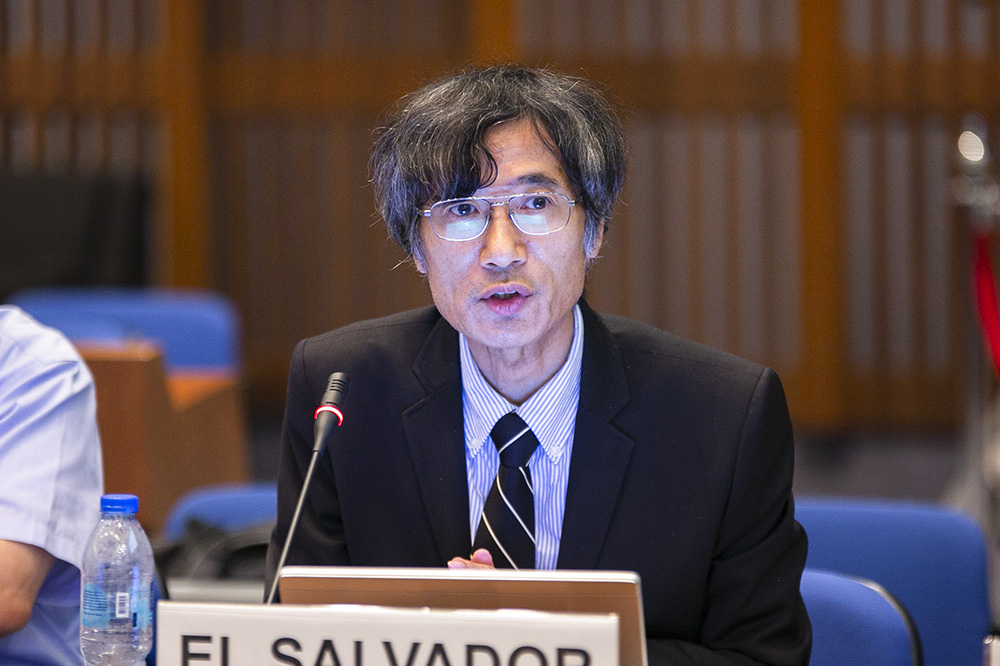
DOWNLOAD ENB REPORT
IP3 Resources
IISD ENB/ENB+ Meeting Coverage
- 2019 Meetings of the Conferences of the Parties to the Basel, Rotterdam and Stockholm Conventions (BRS COPs), 29 April - 10 May 2019, Geneva, Switzerland
- ICCM OEWG3, 2-4 April 2019, Montevideo, Uruguay
- 4th Session of the UN Environment Assembly (UNEA 4), 4-15 March 2019, UNEP Headquarters, Nairobi, Kenya
- IP2, 13-15 March 2018, Stockholm, Sweden
- IP1, 7-9 February 2017, Brasilia, Brazil
- 2017 BRS COPs, 25 April – 5 May 2017, Geneva, Switzerland
- ICCM4, 28 September - 2 October 2015, Geneva, Switzerland
- ICCM3, 17-21 September 2012, Nairobi, Kenya
- ICCM2, 11-15 May 2009, Geneva, Switzerland
- ICCM1, 4-6 February 2006, Dubai, United Arab Emirates (UAE)
IISD Resources
- Subscription Page for IISD Reporting Services Peer-to-Peer Mailing Lists (including CHEMICALS-L, SDG, CLIMATE-L, BIODIVERSITY-L, OCEANS-L, and Regional Updates)
- SDG Update Newsletter - A compilation of news, commentary and upcoming events published on the SDG Knowledge Hub
- SDG Knowledge Hub - An Online Resource Center for News and Commentary Regarding the Implementation of the United Nations’ 2030 Agenda for Sustainable Development, including all 17 Sustainable Development Goals (SDGs)
- Linkages Update - International Environment and Sustainable Development News
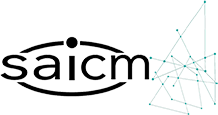 Specific funding for IISD Reporting Services coverage of IP3 has been provided by the SAICM Secretariat
Specific funding for IISD Reporting Services coverage of IP3 has been provided by the SAICM Secretariat